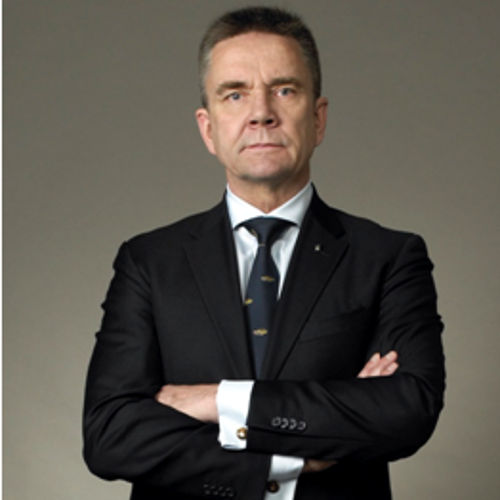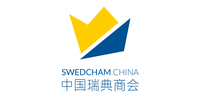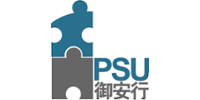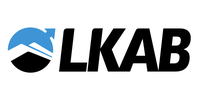Swedcham's China News Flash Webinar is a collaboration between the Swedish Chamber of Commerce in China and the security consultancy PSU China since March 2020.
What's new in China News Flash 3.0? The webinar has been changed from monthly to quarterly event and four (4) times a year with a specific topic suggested by PSU. The purpose is to offer SwedCham members a regular, valuable and time-efficient update on the relevant business and industrial topics.
About Speakers:
Kristian Odebjer, Partner at Odebjer Fohlin Associates and Chairman of the Swedish Chamber of Commerce in Hong Kong
Take this opportunity to hear Kristian Odebjer – Partner at Odebjer Fohlin Associates and Chairman of the Swedish Chamber of Commerce in Hong Kong – introduce a research project on "Compliance Dilemmas" that is currently underway among Nordic companies active in China. The project aims to map how companies manage situations where they have to comply with the laws of both China and one or several foreign jurisdictions, even though these are sometimes contradicting each other. The project is led by Kristian, in partnership with the Swedish National China Centre and the China Office of Finnish Industries.
Lars-Åke Severin, Founder and CEO of the Security Consultancy Firm PSU
Lars-Åke has a background from the Swedish Armed Forces, the Swedish Police and Swedish Security Police (SÄPO). Lars-Åke operationally led the Swedish Royal Family Close Protection Teams and founded Her Royal Highness Crown Princess Victoria's Close Protection Team.
Lars-Åke founded PSU in China in 2006 and is one of the leading foreign experts on security management in China. Lars-Åke is also Director and member of the board of the Swedish industrial company Bulten (China) and Chairman of the board at PowerCell China. From 2010 to 2016 Lars-Åke served as Director of the main board for Swedish Chamber of Commerce in China and from 2016-2021 as its Chairman.
Lars-Åke is an often-engaged speaker on Risk Management Strategies in complex environments and Supplier Compliance Research & Audit.
The webinar will be moderated by Malin Hammarén , GM of SwedCham China.
Welcome to read the below article written by Lars-Åke Severin, Founder and CEO of the Security Consultancy firm PSU. Download the full article by clicking here.
Article: "Compliance, conflicting legislation and emotions that govern"
Compliance is a fundamental part of business. New legislation, global trade challenges and the rapid spread of information place high demands on our companies.
This requires constant attention and often involves costly investments. It is particularly challenging when stakeholders assume that problems will resolve themselves simply by having the supplier fill out a few questionnaires. If you are a company with ambitions to build strong brands with global reach, this way of thinking will often lead to a rude awakening.
Fortunately, this is not how most companies operate. Many have years of experience with compliance, and some Swedish companies have been at the forefront for many years. Compliance is also an integral part of risk management. The crucial role that monitoring and control of compliance plays in a company's risk management is, however, often overlooked. More time is spent on creating regulations and analysing requirements than on follow-up and control. Without effective control, the regulations themselves, regardless of who issues them, become mostly a formality, and the legal and brand risk exposure increases. In our experience, onboarding procedures and confirming a supplier's actual compliance are the areas where companies are weakest.
A current dilemma is also that different regulations in different parts of the world impose different requirements. Companies risk ending up in a situation where complying with one country's legislation could result in them violating another country's legislation. For example, if Chinese companies were to be sanctioned on a large scale, China could invoke its anti-sanctions legislation. This would create a Catch-22 situation for foreign companies conducting business in China: no matter what they do, they would be violating someone's legislation.
Currently, the National Knowledge Centre on China in Sweden, the law firm Odebjer Fohlin Associates in Hong Kong, and the China Office of Finnish Industries in Helsinki are running a study that aims to map the reality for Swedish companies and how often they find themselves in a 'compliance squeeze'. It's a study well worth waiting for.
Based on our experience, companies traditionally establish a "must-have level" of compliance governed either by national legislation or corporate regulations. The highest standards are always adhered to. In the Swedish business sector, it is not uncommon for companies' internal rules and policies to be more stringent than national legislation. Another question to consider is whether stricter compliance requirements are always intended to improve compliance or are being used as a poorly disguised weapon in the ongoing trade conflicts.
Another complicating factor is that the media easily influence public opinion and consumption patterns. The sometimes one-sided negative image of China contributes to a generalised view of Chinese suppliers. Articles and reports in this area tend to reflect a bygone era. They fail to acknowledge the changes in regulatory compliance in recent years, the increased maturity of many Chinese companies and the evolving priorities of Chinese entrepreneurs. Compliance is simply not only increasingly essential in China but also considered a necessity to attract an increasingly conscious group of global consumers. Then there is the fact that President Xi standing on the podium with Putin and Kim Jong-Un does little to improve China's image. It's not only a challenge for foreign companies in China but also for Chinese companies with a global ambition.
Compliance should be based on facts and on how a specific supplier performs, rather than on emotional perceptions. Companies must clarify the national legal conditions that prevail and establish a high level of practice that works seamlessly across all borders.
After research on thousands of suppliers over the past 10 years, it is clear to us that today, the largest problem is not compliance among Chinese suppliers. Rather, it is the unwillingness to create insight, increase transparency and communicate knowledge about how things really are. It may be easier to continue living in the past, but that does not promote sustainable development and actual compliance.
This webinar is free of Charge for members. Welcome to sign up!
Meeting information
Date
5 December, 2025 (Friday)
Time
15:00 - 15:30 , Beijing time
Venue
A Microsoft Teams meeting link will be sent out one day prior to the event.
Ticket
Members/YP/Individual Discount Pass: Free of charge
Non- members: 100 RMB
Language
In English
Cancellation Policy
If you cannot attend this event for which you have registered, please cancel your registration no later than seven (7) business days prior to the event. If you fail to notify us of your cancellation in a timely fashion, you will be charged for the event costs.
Fapiao (VAT Invoice)
Apply fapiao when purchasing a ticket, by inputting the Chinese entity name and tax ID (if the title is wrong, you will be unable to receive the Fapaio). E-Fapiao will be sent to your e-mail within 7 days after completed event (check spam folder). If the fapiao can not be received, please provide an alternative email.
For inquiries related to fapiao, please email finance@swedcham.cn
Speakers

Kristian Odebjer
Partner at Odebjer Fohlin Associates and Chairman of the Swedish Chamber of Commerce in Hong Kong
More Information































































